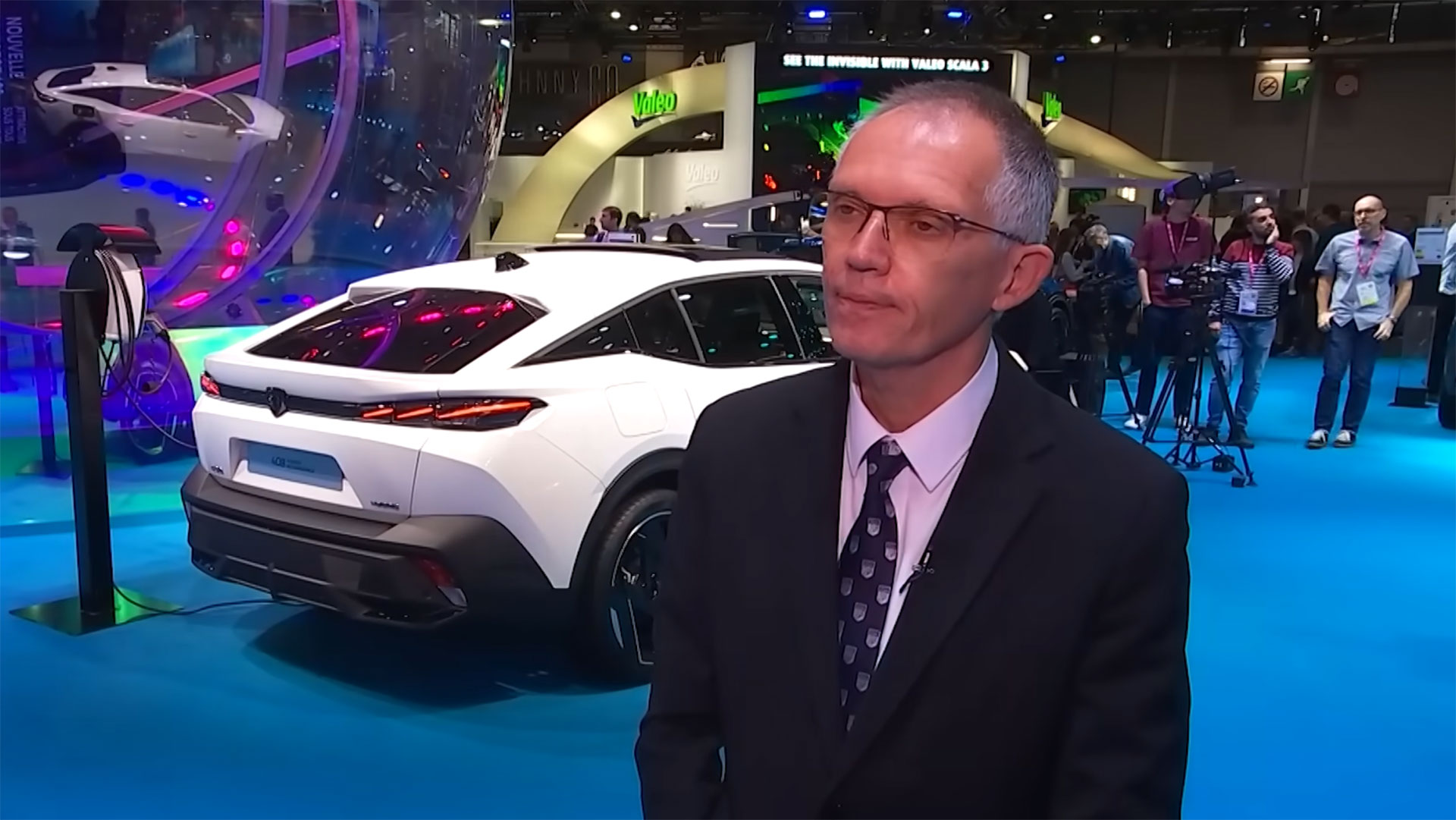The European automobile group (Stellantis), although the most resistant to the massive arrival of Chinese electric vehicles, has just announced that it has joined forces with one of them: Leapmotor. This is bound to cause a lot of discussion.
Carlos Tavares, the boss of the Stellantis group – with 14 automobile brands including Peugeot, Citroën, Fiat, Jeep, etc. – has been making fairly offensive speeches for several years regarding the threat from Chinese manufacturers in Europe. While other European group leaders have always moved cautiously on the subject, Carlos Tavares has always maintained a certain mistrust, accusing Chinese manufacturers of being unfair competition on the international market. This does not prevent the Franco-Italian-American group Stellantis from announcing on October 26 that it has signed a major partnership with the Chinese manufacturer Leapmotor.
Taken up by Le Figaro, Carlos Tavares justified the partnership as follows: “ The Chinese offensive has already started, and we do not want to be a victim of it, but a leader “. A turnaround that does not lack irony. Rumors on the subject were becoming more and more insistent, but it was difficult to know what the group was looking for in Chinese manufacturers. We know more with the agreement formalized today.
Helping Leapmotor establish itself in Europe
Carlos Tavares will therefore find himself helping the Chinese Leapmotor to develop in Europe and internationally. As part of the deal, a joint venture named “Leapmotor International” was created with Stellantis as the 51% majority shareholder.
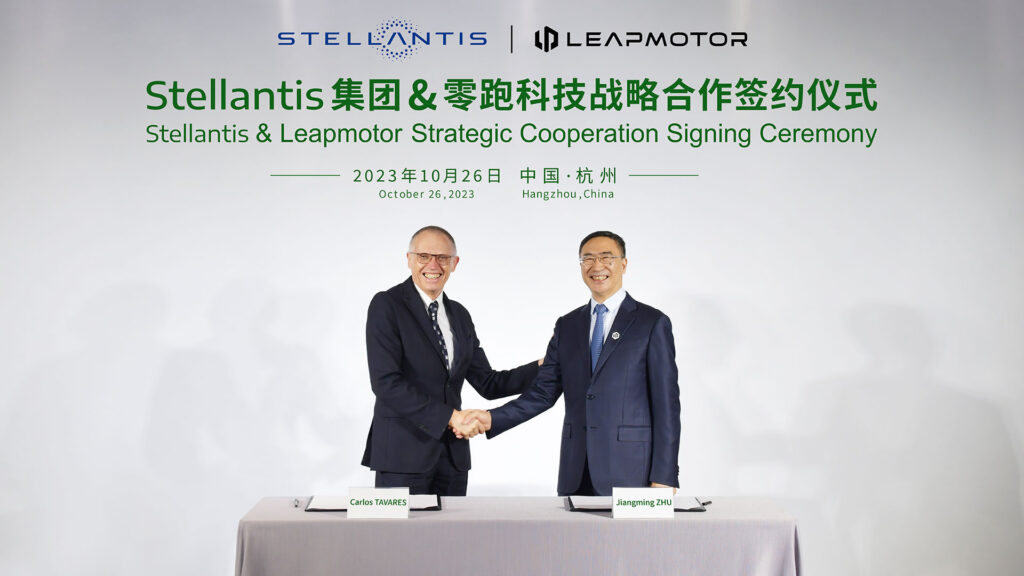
Stellantis thus gains control over exports, sales and even production of Leapmotor models outside China. It is also not excluded that certain models from the Chinese manufacturer will later be assembled in factories of the Stellantis group to meet demand or overcome some administrative barriers erected by Europe.
Carlos Tavares refuses to think that Stellantis is becoming a “ Trojan horse » for Chinese vehicles in Europe. On the contrary, he considers regaining power in the face of the Chinese offensive: “ The reality is that Europe desperately needs it. With Leapmotor, we will be very cost efficient. The product is already ready. »
This is an approach that will perhaps appear in the automobile history books, either for the most brilliant idea, or for the worst strategy: “ We believe that now is the ideal time to actively contribute to the international expansion strategy of Leapmotor, one of the most notable new players in the electric vehicle sector, which shares with us the same technology-driven entrepreneurial spirit. »
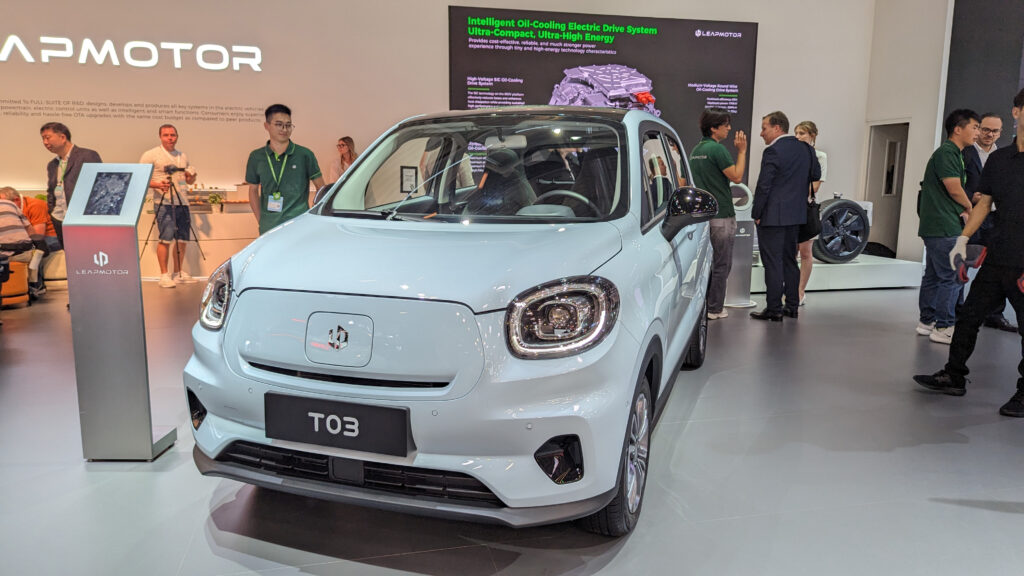

At the moment, the only model we know of from Leapmotor in Europe is the affordable T03 city car. However, the Munich show last September was an opportunity to discover other models produced and planned by the Chinese manufacturer. Our first impressions were quite positive in relation to the vehicles on display, but the fact remains that with the exception of the city car, it is immediately difficult to see what would make Leapmotor a golden goose in Europe for Stellantis.
A strategic interest that is certainly hidden elsewhere
It is not so much the marketing in Europe of Leapmotor that really seems to motivate Stellantis. This part appears more like a counterpart to the initial deal.
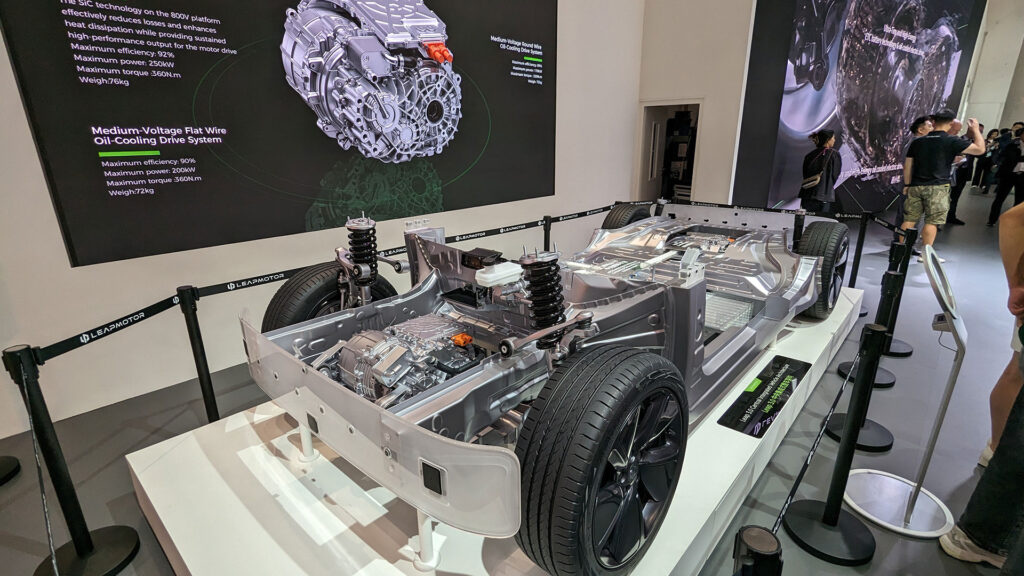

The group is certainly more interested in the new platform developed by Leapmotor. This was also presented on the stand at the Munich show. The platform uses “cell-to-chassis” technology, which means that the batteries are an integral part of the vehicle structure. This is a solution that we find in particular at Tesla, and that other Chinese manufacturers such as BYD have also quickly integrated. However, this is still sorely lacking among European manufacturers who still use more traditional assemblies via modules and battery packs added to the chassis of electric cars.
This platform also interests Stellantis, because it can accommodate a range extender. It is particularly around this technology that the bulk of the rumors have focused. While Stellantis is supposed to have 4 new platforms in the pipeline for electric cars (STLA-Small, Medium, Large and Frame), it is possible to wonder if Stellantis is really sure of the developments it has already made. The first model to be released on the European market with this new architecture is the Peugeot e-3008 in STLA-Medium.
Finally, while Stellantis is in full development of its STLA-Brain, the software part which must accompany the new generation of electric cars to come, the group certainly has a particular interest in the system integrated by Leapmotor. The Chinese manufacturer has developed a new electrical architecture with its platform. As the Stellantis press release points out: “ The latter ensures fluid and efficient interaction with the main components of intelligent electric vehicles. »
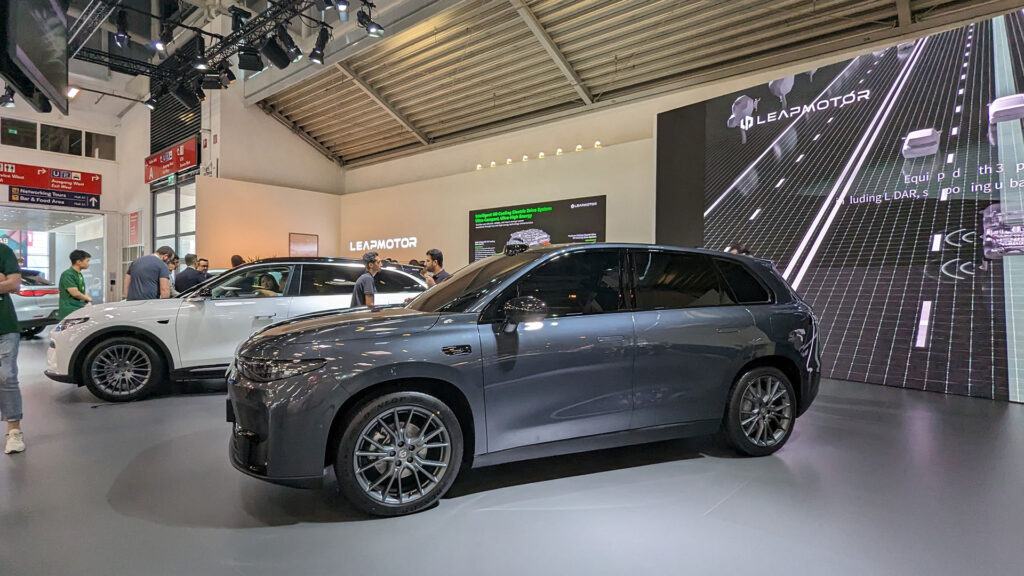

Stellantis therefore seems to have gone to market to understand how a Chinese manufacturer can produce more affordable and technologically advanced electric vehicles than an automobile manufacturer which has more than 100 years of experience in this area. And it is not the only European group to form a partnership to bring new skills internally. Thus, Volkswagen has already signed a partnership with XPeng, and in the coming weeks, it would not be surprising to discover that Mercedes announces signing the same type of agreement with Nio.
Things are moving quickly in the automobile industry, so to not miss any of the latest electric car news, subscribe to our free weekly Watt Else newsletter.
Subscribe to Numerama on Google News so you don’t miss any news!
